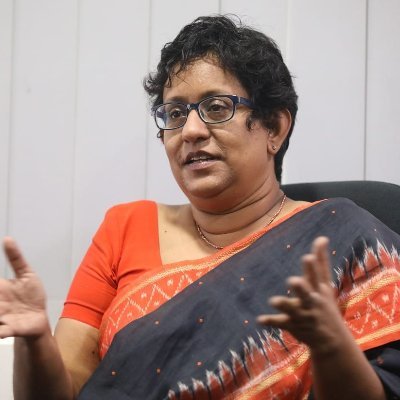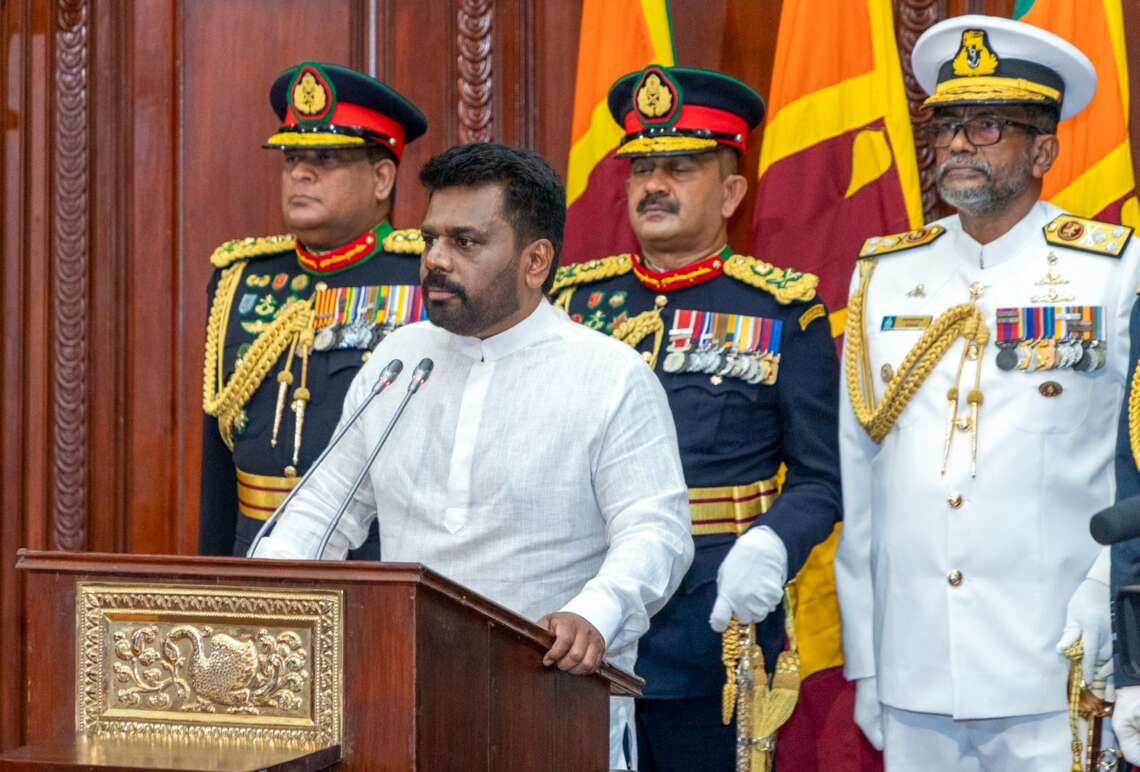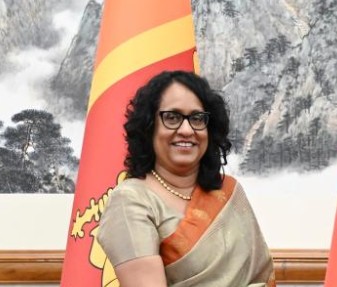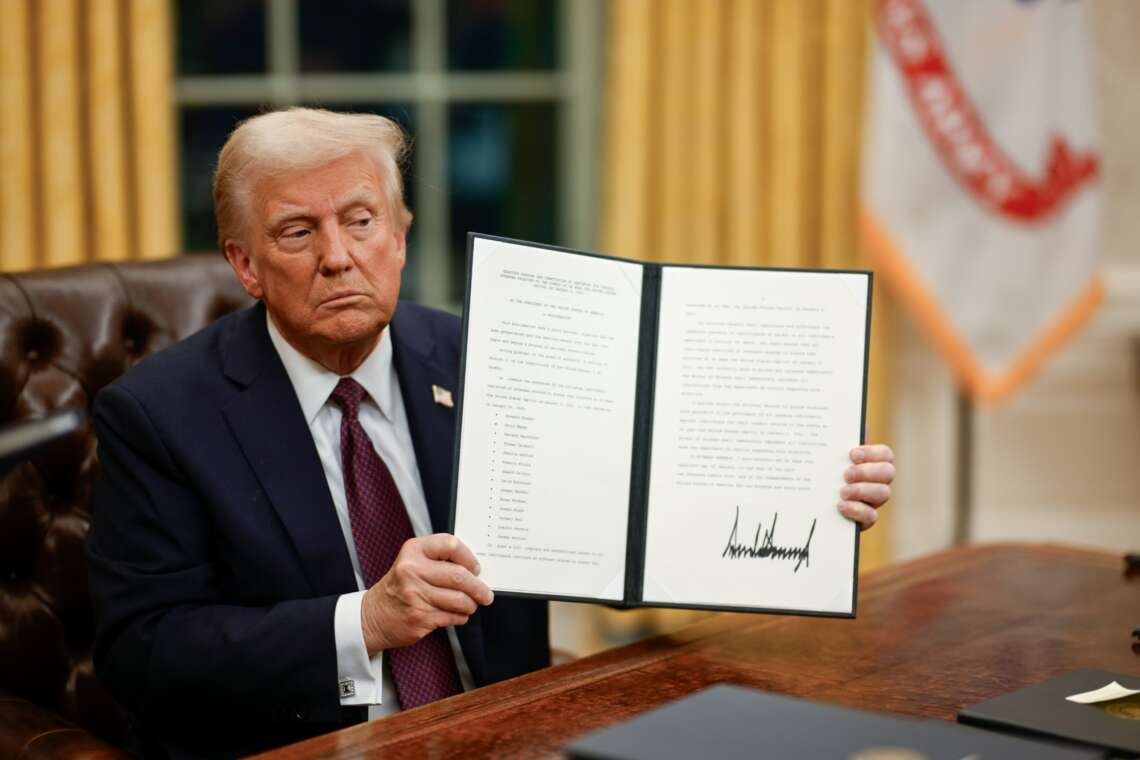Prime Minister Harini Nireka Amarasuriya recently admitted the lack of a coherent strategy, but a new joint statement with China has further fuelled concerns.
Sri Lanka’s foreign policy has long been criticised for its inconsistencies, but it is rare for those in power to acknowledge these shortcomings. Recently, Prime Minister Harini Nireka Amarasuriya admitted the issue, stating, “We do not seem to have a coherent foreign policy; every minister comes in, and they tend to take unilateral decisions, and the government tends to take unilateral decisions — not based on any kind of coherent policy; that’s something we really need to change.”
Despite this admission, critics argue that the current administration has yet to take significant steps to address these inconsistencies. A report from the Centre for Strategic Studies in Trincomalee has raised concerns over the government’s foreign policy direction, particularly regarding Sri Lanka’s stance on the “One China Policy.”
Sri Lanka was the first South Asian nation to recognise the People’s Republic of China (PRC) in 1950 and has consistently upheld the One China Policy. However, a recent joint statement between President Anura Kumara Dissanayake and Chinese President Xi Jinping has attracted scrutiny. The statement read, “Sri Lanka firmly supports all efforts by the Chinese government to achieve national reunification and opposes ‘Taiwan independence’ in any form. Sri Lanka reiterated that it will never allow its territory to be used for any anti-China, separatist activities and will firmly support China on issues related to Tibet and Xinjiang.”
By explicitly endorsing Beijing’s stance on Taiwan, Tibet, and Xinjiang, Colombo appears to be shifting away from its traditional non-alignment.
For the first time, a Sri Lankan government has expanded its position on the One China Policy beyond Taiwan, explicitly including Tibet and Xinjiang. Analysts from the Centre for Strategic Studies pointed out that this shift equates the Taiwan issue with Tibet, embedding it within China’s broader territorial claims.
Tibet has long been a point of contention in India-China relations, with disputes over regions like Tibet and Xinjiang leading to military confrontations, including the Galwan Valley clash in 2020 and the Tawang skirmish in 2022. The Xinjiang region, which China administers as Aksai Chin, is strategically significant due to its proximity to the China-Pakistan Economic Corridor (CPEC) and its potential military use. Additionally, allegations of human rights violations in Xinjiang have drawn international criticism.
Despite President Dissanayake’s earlier declaration that Sri Lanka would not align with any power blocs, the joint statement’s unequivocal support for China has led to accusations of policy inconsistency. “There are many power camps within a multipolar system – we won’t be a part of that geopolitical fight, nor will we be aligned with any party,” Dissanayake had stated after his election victory. However, the current trajectory of Sri Lanka’s foreign policy suggests otherwise.
The move has also drawn attention to Sri Lanka’s deviation from its traditional non-alignment stance. “On the surface, the One China Policy is an internal issue of China, but from a geopolitical perspective, it is related to a global power struggle,” noted the Centre for Strategic Studies.

“Every minister takes unilateral decisions—not based on any kind of coherent policy; that’s something we really need to change.” – Prime Minister Harini Nireka Amarasuriya
The United States and its allies have voiced concerns about China’s growing assertiveness regarding Taiwan. Taiwan, a democracy ranked first in Asia and 10th globally in the Democracy Index 2023, remains a focal point of geopolitical tensions. Reports indicate that Chinese President Xi Jinping has instructed military commanders to prepare for a potential conflict with Taiwan by 2027.
Critics argue that the National People’s Power (NPP) government’s pro-China position undermines Colombo’s commitment to neutrality. The explicit endorsement of Beijing’s stance on Taiwan, Tibet, and Xinjiang in the joint statement signals a significant shift in Sri Lanka’s foreign policy, raising questions about its alignment with the rules-based international order.
As Sri Lanka navigates these diplomatic waters, its decisions will have far-reaching implications for regional stability, its relations with India, and its position on the global stage.
ALSO READ: Japan, Sri Lanka strengthen bilateral cooperation














